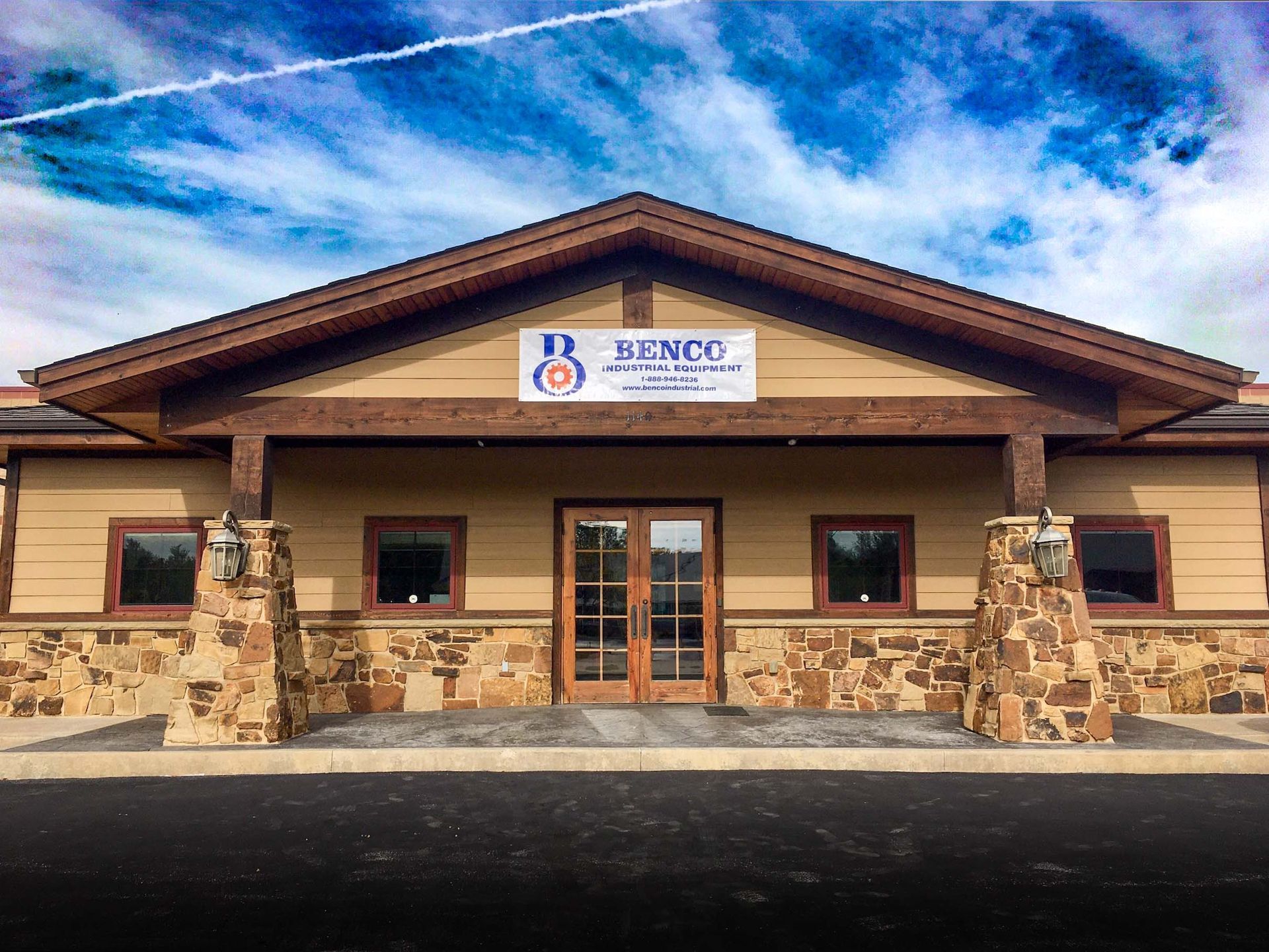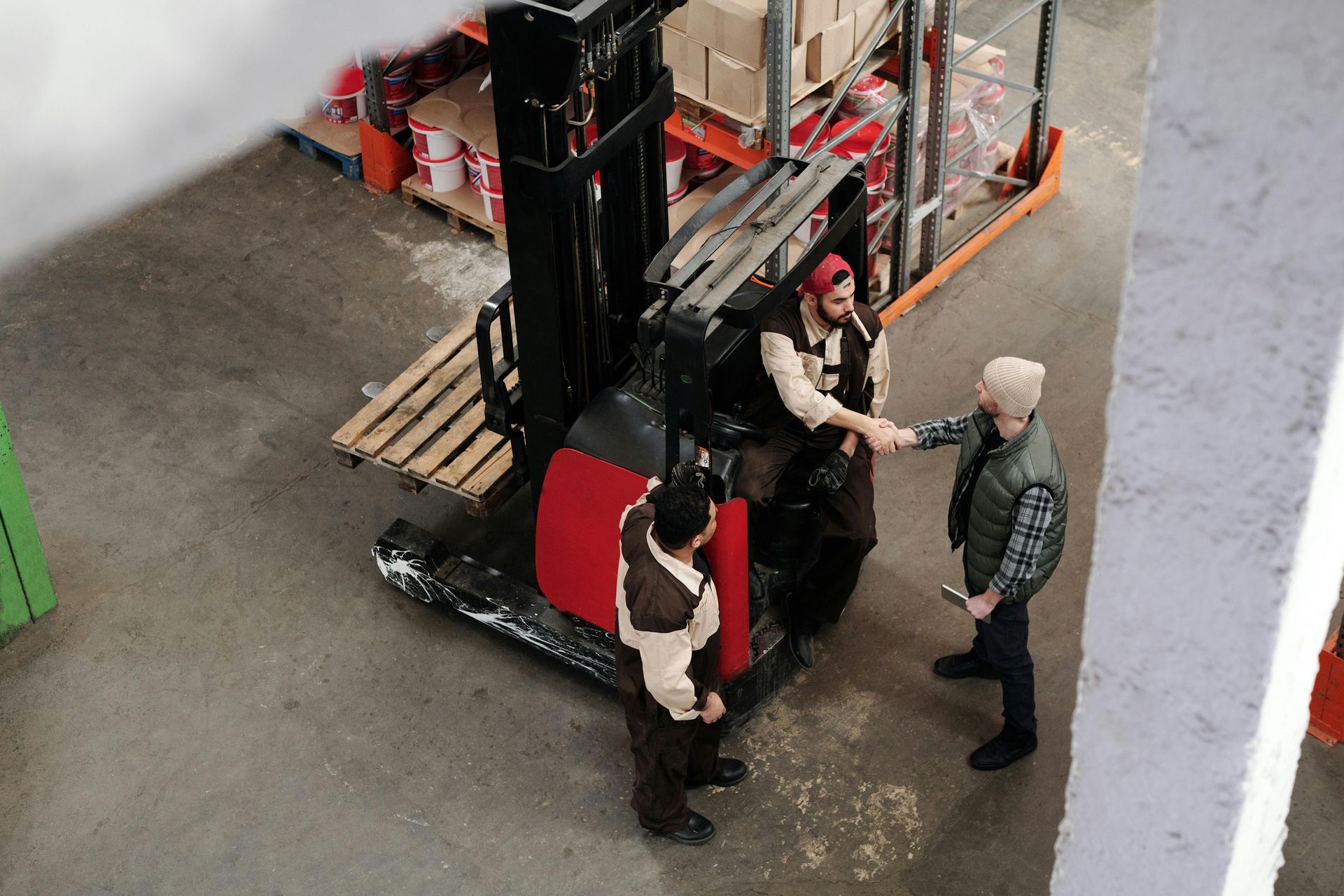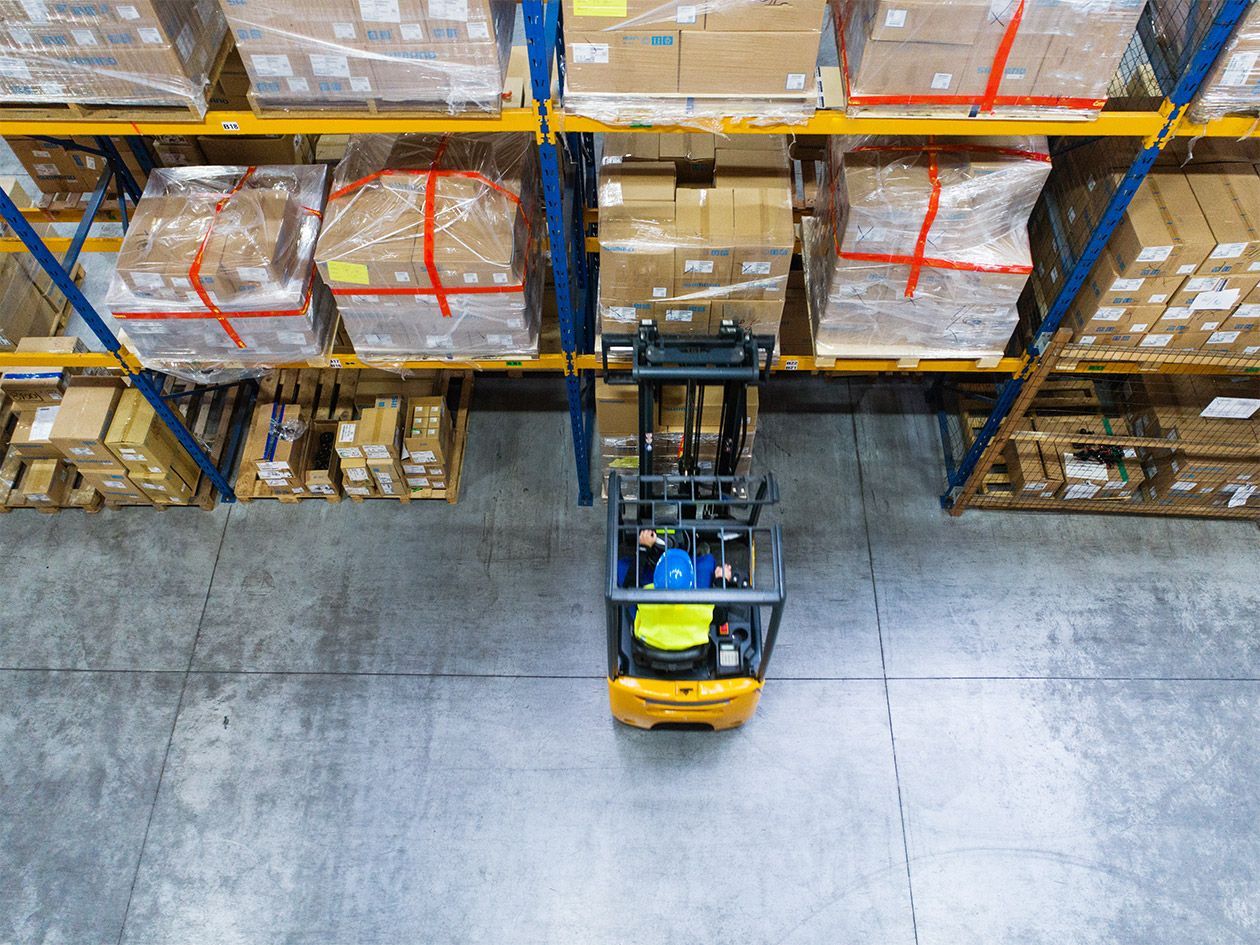Eco-Friendly Strategies for a Sustainable Warehouse
In today's business environment, sustainability is more than just a buzzword—it's a crucial aspect of corporate responsibility and operational efficiency. As integral parts of supply chains, warehouses offer significant opportunities for reducing environmental impact. Implementing eco-friendly strategies helps the planet and can lead to cost savings and operational improvements.
Here's a comprehensive guide to making your warehouse more eco-friendly.
Energy Efficiency
Energy consumption is a significant factor in a warehouse's environmental footprint. Luckily, there are some simple changes that can instantly impact your facility's energy consumption.
- Upgrade Lighting: Replace traditional lighting with energy-efficient LED bulbs. LEDs use less power and have a longer lifespan, reducing energy use and waste.
- Optimize Heating and Cooling: Implement energy-efficient HVAC systems. Use programmable thermostats to manage temperature settings and ensure that systems only run when necessary. Additionally, insulate the warehouse to prevent outside air (at undesired temperatures) from entering and maintain a consistent room temperature.
- Energy Management Systems: Install energy management systems to monitor and control usage levels throughout the facility. These systems can provide insights into consumption patterns and help building managers identify areas of improvement.
Renewable Energy Sources
Integrating renewable energy sources can drastically reduce a warehouse's carbon footprint.
- Solar Panels: Consider installing solar panels on the roof to harness sunlight and generate electricity; this can reduce dependence on non-renewable energy sources and lower utility bills (saving you substantial money).
- Wind Turbines: Small wind turbines can supplement energy needs in warehouses in suitable locations. They convert wind energy into electricity and can be particularly effective in windy areas.

Waste Management
Effective waste management is crucial for reducing environmental impact.
- Recycling Programs: Implement a comprehensive recycling program and ensure a protocol exists to separate recyclable materials such as paper, plastic, and metal. Additionally, train warehouse employees on proper recycling procedures and check to make sure they are following them.
- Reduce Packaging Waste: Work with suppliers to reduce packaging materials and opt for recyclable or biodegradable options. Encourage the use of returnable and reusable packaging.
- Composting: If your warehouse handles organic waste, install a composting system. Composting reduces landfill waste and provides valuable nutrients for the soil.
Sustainable Transportation
Optimize transportation in and outside the warehouse for both efficiency and sustainability.
- Electric Vehicles: Invest in electric forklifts and other warehouse equipment. Electric vehicles produce zero emissions and can lower operating costs in the long run.
- Efficient Routing: Use logistics software to optimize transportation routes and reduce fuel consumption. Efficient routing minimizes travel time and fuel usage, reducing overall emissions and the number of person-hours needed for deliveries.
- Carpooling & Public Transportation: Encourage employees to carpool to the warehouse or use public transportation. Provide incentives for those who opt for eco-friendly commuting options.
Green Building Practices
Incorporating green building practices into warehouse design and renovations can go a long way for sustainability.
- Sustainable Materials: Use sustainable building materials such as reclaimed wood, recycled steel, and low-VOC paints. These materials have a lower environmental impact and contribute to a healthier workspace.
- Green Roofs and Walls: Install green roofs or living walls to improve insulation, reduce heat absorption, and support biodiversity. These features also contribute to better air quality.
- Water Conservation: Implement water-saving fixtures like low-flow toilets and faucets. Additionally, rainwater can be collected for landscaping or other non-potable uses.
Employee Engagement
Engaging employees in sustainability initiatives is critical to ensure the efforts are not in vain.
- Training and Awareness: Provide training on eco-friendly practices and the importance of sustainability. Educate employees on how their actions contribute to the warehouse's environmental goals.
- Incentive Programs: Create incentive programs to reward employees who contribute to the warehouse's sustainability efforts. Recognize and celebrate eco-friendly practices and innovations.
Continuous Improvement
Sustainability is an ongoing journey, not a finite destination. As such, regular reviews and process tweaks are necessary.
- Regular Audits: Conduct regular environmental audits to assess the effectiveness of your eco-friendly strategies. Identify areas for improvement and adjust practices as needed.
- Benchmarking: Compare your warehouse's sustainability performance with industry standards and best practices. Use benchmarking data to set goals and drive continuous improvement.
- Feedback Mechanism: Establish a feedback mechanism for employees to suggest improvements and share ideas for enhancing sustainability.

Work with Benco Industrial
Adopting eco-friendly strategies in your warehouse helps the environment and leads to operational efficiencies and cost savings. Focusing on energy efficiency, renewable energy, waste management, sustainable transportation, green building practices, employee engagement, and continuous improvement can make a significant positive impact.
Our Benco Industrial Equipment team offers personalized assistance and consultation to help you find the best solutions for your warehouse needs.
Contact us today to explore our range of industrial equipment and services and take the first step toward improving your warehouse operations.




